Preparing your community for their future
A guide for community leaders and facilitators to help start conversations about future planning
A guide for community leaders and facilitators to help start conversations about future planning
This page is designed to provide the information and resources you need to facilitate a future planning conversation with the individuals or groups you support.
We know that if a person has future planning documents in place, such as an Enduring Power of Attorney and Medical Treatment Decision Maker Form, they are less likely to experience elder abuse.
However, only 10-20% of Australians have these documents in place. A key barrier to future planning is that many people don’t know how to have conversations about ageing.
Through a future planning conversation, you can encourage people to start thinking about their older age, and consider what future planning documents they might like to put in place.
A future planning conversation is designed to help people consider what their wishes and interests are as they age.
This can allow people to make informed choices about what legal documents they may like to put in place, to empower and protect them as they get older.
Step one: Thinking about what you want your older age to be like.
Step two: Talking to people you trust about what you want for your older age.
Step three: Writing down what you want so that there is a record of your wishes and decisions.
Step four: Formalising your arrangements in legal documents.
You can use our Conversation Guide resource to navigate a future planning conversation with individuals or groups in your community.
All you need is the Conversation Guide in its appropriate language. If the language of the people you’re working with is not available, you can work with an interpreter.
Our Conversation Guide can help people:
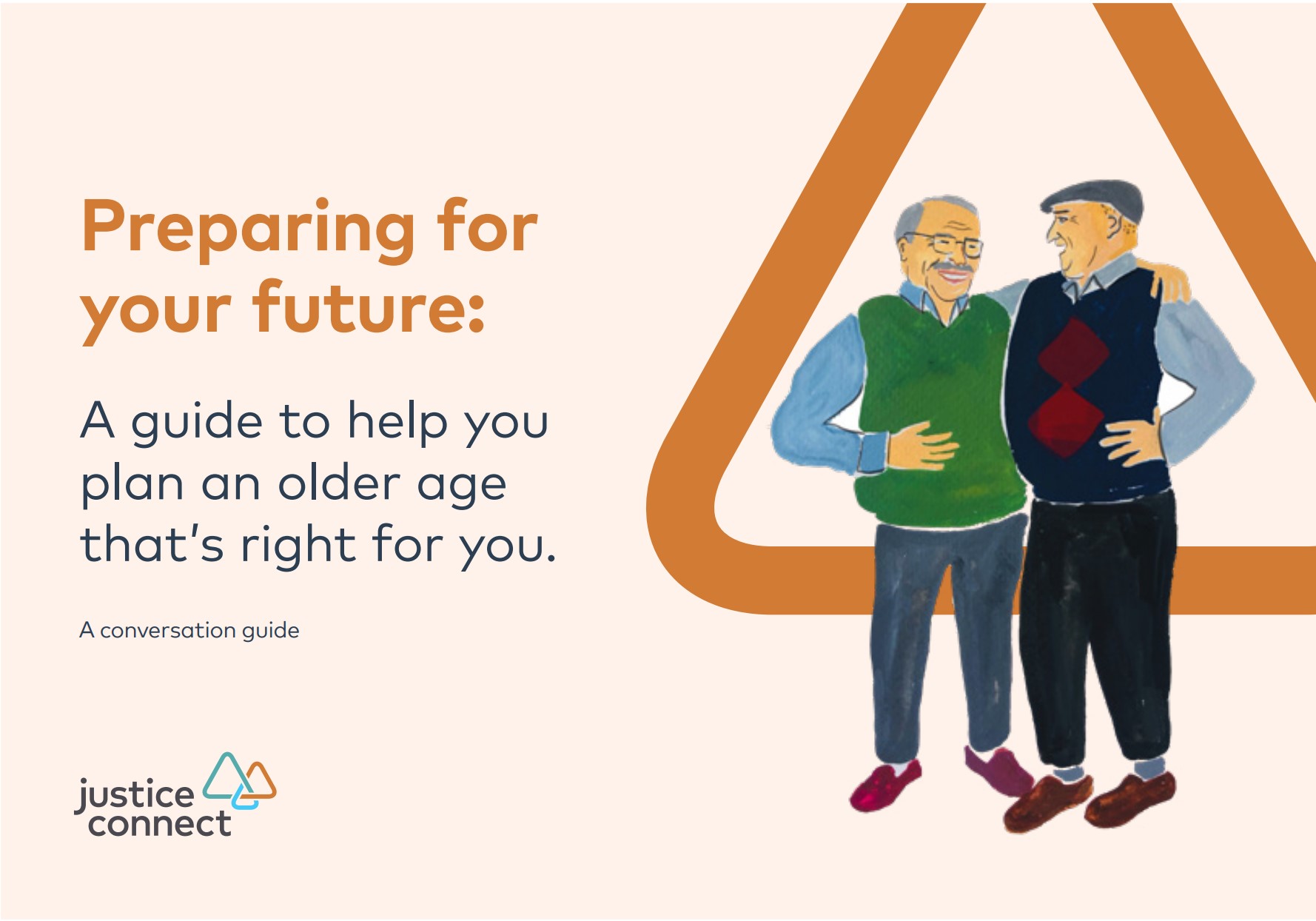
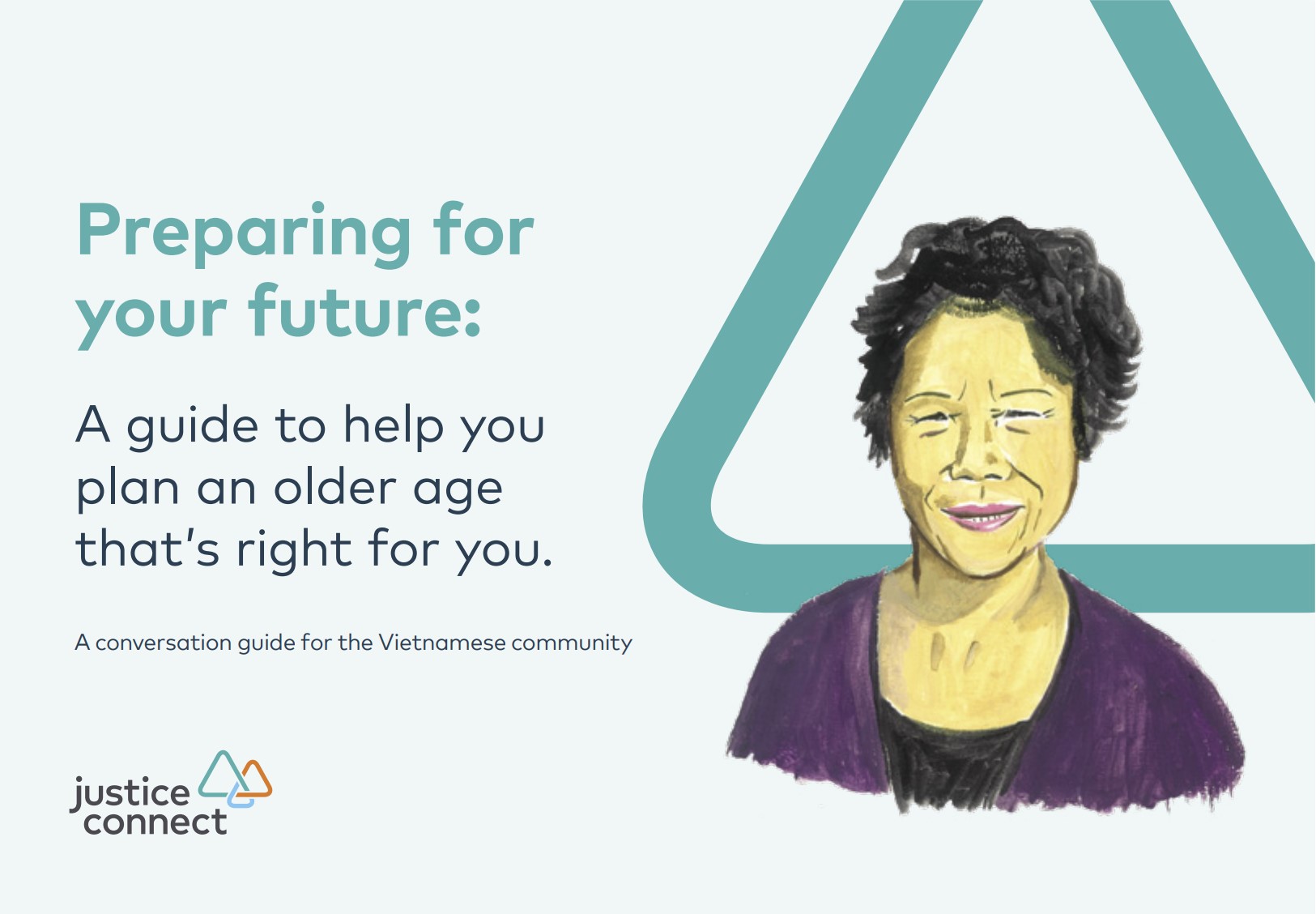
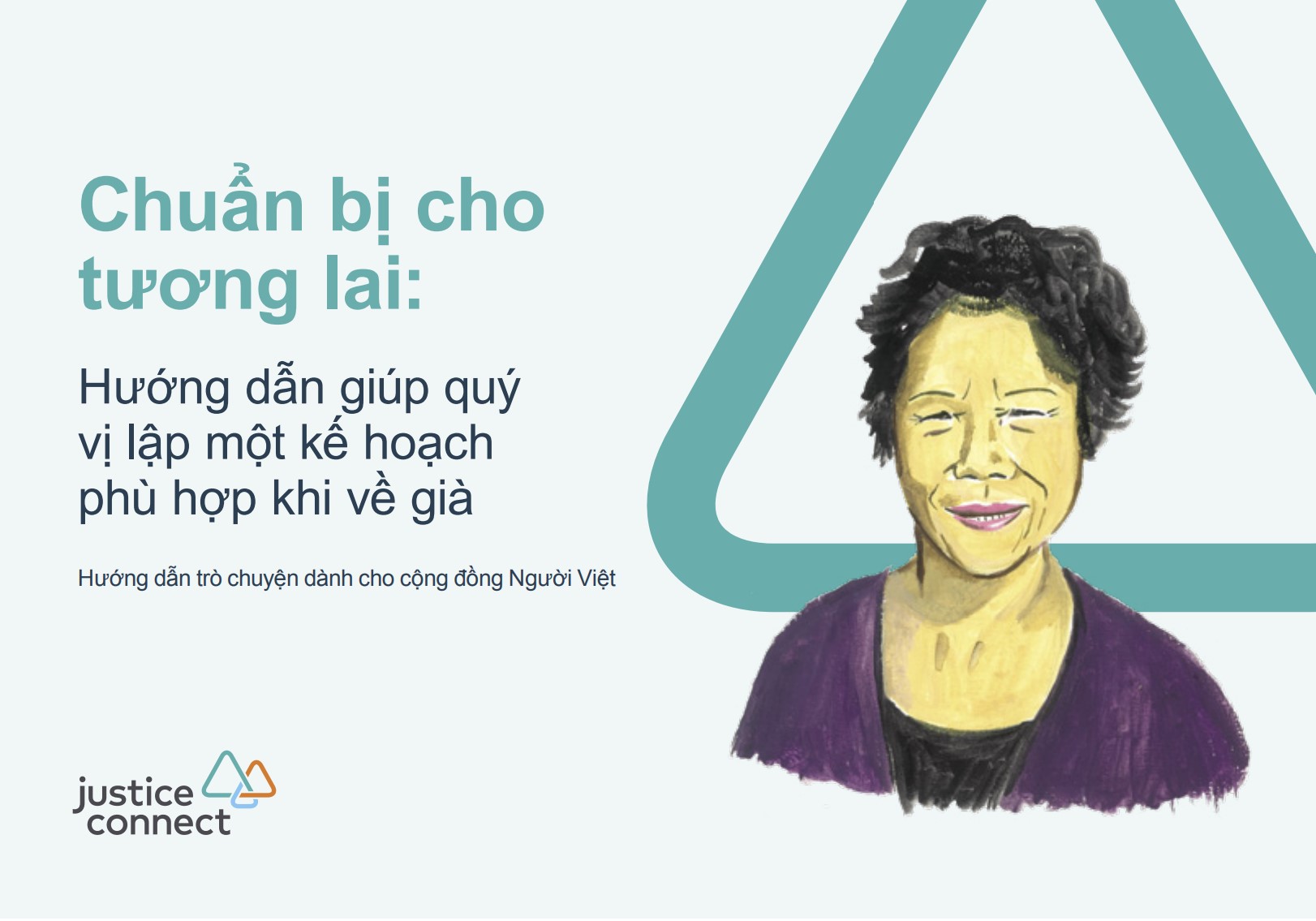
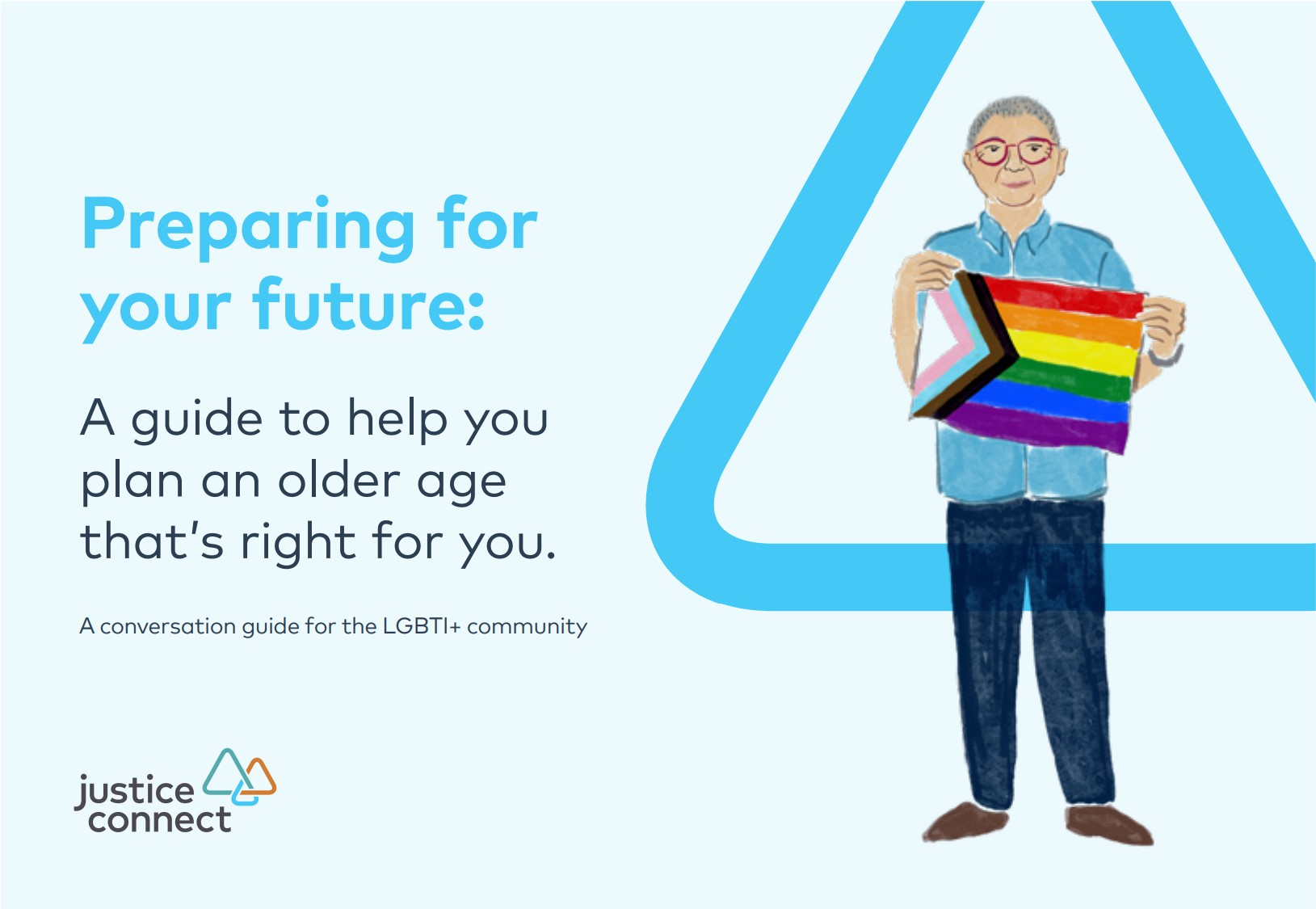


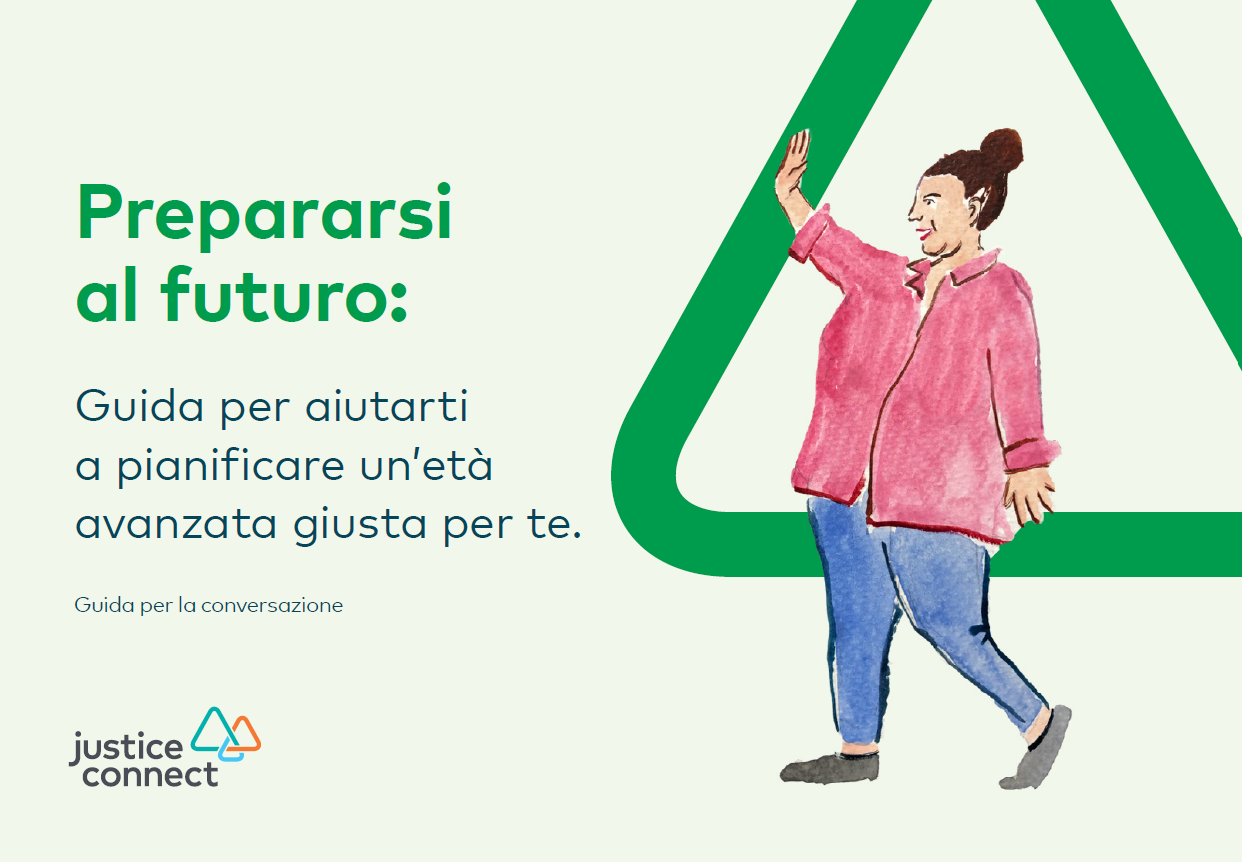
IMPORTANT: The Conversation Guide is not a legal document. Once the Guide is completed, people will need to organise future planning documents separately to formalise their wishes.
We know there are many barriers to having conversations about future planning, including:
To help start a conversation about future planning, we’ve put together some suggested wording you can use:
“I went to a workshop this week and was given this Conversation Guide. I thought you might be interested in reading through it too – it talks about how to plan for the future you want to have. Then we can talk more about it next time we catch up, if you’d like to.”
“I’ve brought this Conversation Guide along today which has lots of good information about how to set yourself up to live the life you want to live as you get older. I am happy to talk to you about what you want your life to be like over the next few years. If you want to read through the Guide, and even make some notes in it if you want, we can talk more about it when we catch up next.”
“Are you happy with the way you are living your life at the moment? Have you thought about how you want your life to be like as you get older? For example, where you will live, what activities you want to continue doing, who you want to live near?”
“Have you thought about how you want your life to be over the next few years? For example, what you like to do? Who you like to spend time with? Let’s take a look at this Conversation Guide I’ve brought along, so we can think about what matters to us as we get older.”
So you have control over who makes these important decisions in your future at any time when you aren’t able to make the decisions for yourself – someone who knows you well and who you trust.
The law has a list of people who can make these decisions for you, in the following order of priority:
Guardian appointed by VCAT
Spouse or partner
Carer (not a paid carer, but the person can receive the Centrelink carer benefit)
Parent
Child (if more than one, the oldest)
Sibling (if more than one, the oldest)
Yes.
No.
Yes.
Yes. These documents do different things – an Enduring Power of Attorney and Medical Treatment Decision Maker can make decisions on your behalf if at any time you are unable to make those decisions for yourself. These documents are all about you taking control of your important decisions, so you can live the life you want to live. While a Will is only effective after the person who made it dies – not while they are alive.
An Enduring Power of Attorney nominates the person(s) you would like to make your personal decisions (such as which services you will receive and who can visit you) and/or your financial decisions (such as accessing your bank account and paying your bills), in the event you can’t make those decisions at the time.
No one else can automatically make your personal or financial decisions for you. An application must be made to VCAT (the Victorian Civil and Administrative Tribunal) to appoint a person(s) to make these decisions for you.
Yes.
You can decide whether decisions need to be made unanimously, by a majority, or severally (i.e. any attorney can act, even if the others don’t agree).
A Medical Treatment Decision Maker form nominates the person you want to make your medical decisions for you in the event you can’t make those decisions at the time.
No. You can only have one Medical Treatment Decision Maker at a time, though you can appoint an alternative person(s) in case the first person can’t or won’t make your medical decisions.
If you have any further questions about facilitating a future planning conversation, or you would like Justice Connect to run a session with your community, please contact our team at seniorslaw@justiceconnect.org.au.